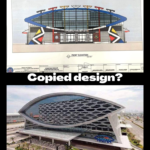Sen. TG Guingona bats for creation of Design Council of the Philippines
Senator TG Guingona on Tuesday has sponsored Senate Bill No. 2930 or “An Act Creating the Design Council of the Philippines and for other purposes” that seeks to harness the huge potential of world-class Filipino talents and utilize them for the country’s economic growth and socio-cultural development.
He pointed out that design is a sunrise industry which should be supported by government. “Today, the term ‘Design’ has evolved into a new development paradigm – a discipline that several nations now see as a driver of economic growth and a vital tool for shaping human interactions and social systems,” he stressed.
 “Design is the process of taking creative ideas that are borne out of limited available resources, and transforming them into tangible, high-value products, services, and even social systems – and this is what the world has always called innovation,” he said.
“Design is the process of taking creative ideas that are borne out of limited available resources, and transforming them into tangible, high-value products, services, and even social systems – and this is what the world has always called innovation,” he said.
Need a place to stay? Book Your Hotel in Bukidnon and anywhere in the world
Need transportation? Book your bus, flight, ferry/boat, train here
YOU CAN ALSO BOOK BY CLICKING BELOW:
Klook.comHe cited Kenneth Cobonpue of Cebu whose furniture design had won accolades around the world for the ingenious integration of indigenous materials with modern production techniques.
“Because of the genius of his innovative design, he is not only bringing in ordinary economy returns. His products bring what is called in economic parlance as very high value export earnings,” Sen. Guingona said.
He said that another example of the great value of design is San Pablo City’s Bottle School Project where softdrink bottles were used to build durable and weatherproof classrooms.
He noted that aside from reducing the cost of building classrooms, the project used recycled materials that would have otherwise added to the city’s trash while addressing the vulnerability of the structure to typhoons.
“This is great example of architecture and industrial design working for social innovation,” he pointed out.
Sen. Guingona also said he had been witness to the power of design in communicating government advocacies more effectively.
He mentioned the 2720 Design Studio which during the Senate Blue Ribbon Committee investigation involving then Ombudsman Merceditas Gutierrez turned the voluminous news articles and facts about the case into clear diagrams and graphic representations of all the evidences.
“Then, the product of their creative and patriotic work was made available as a downloadable file online. In so doing, they not only promoted transparency, but it also encouraged participation from the public because the information was made more interesting and understandable,” he said.
He pointed out that many countries around the world have been successful in adopting design as a national strategy in boosting economic growth, including the United Kingdom, Denmark, and Finland. Our Asian neighbors like South Korea, Singapore, Thailand and Hong Kong are catching up. “But isn’t creativity the very competitive edge of the Filipino race? Are we set to put this vast national asset to waste again?” he challenged.
“I propose that this Bill be our shared and collective response to the vast opportunities right before us; to the fast changing times that we live in, where there is clearly a need to boost the competitiveness of the Filipino design industry, so that it can become a driver of economic growth and social innovation,” Sen. Guingona said.
According to the proposed legislation, the proposed Design Council of the Philippines (DCP) shall be responsible for the promotion and development of the Philippine design industry through the formulation of a comprehensive National Design Policy in consultation with concerned government agencies and design practitioners.
The national design policy seeks to:
· expand the design culture nationwide by creating demand and appreciation for good design and conceiving effective and sustainable promotional strategies that take social, environmental and economic considerations
· propagate design as problem solving by conceiving effective and sustainable design-related strategies that drive economic growth through employment and trade and social innovation that is sustainable, efficient and accessible,
· boost the competitiveness of the Filipino design industry through improvement in design education that will build capabilities, establishing networks and resources for knowledge exchange, provide opportunities to showcase Filipino talent, among others, and
· build a strong national identity.
The proposed DCP shall be chaired by the Secretary of the Department of Trade and Industry and co-chaired by a sitting representative of the design industry. The industry shall have 14 representatives who will sit as members, composed of two representatives each from the Design Academe, Visual Communications, Information Design, New Media and Technology, Fashion Design, Industrial Design, and Environmental Design.

